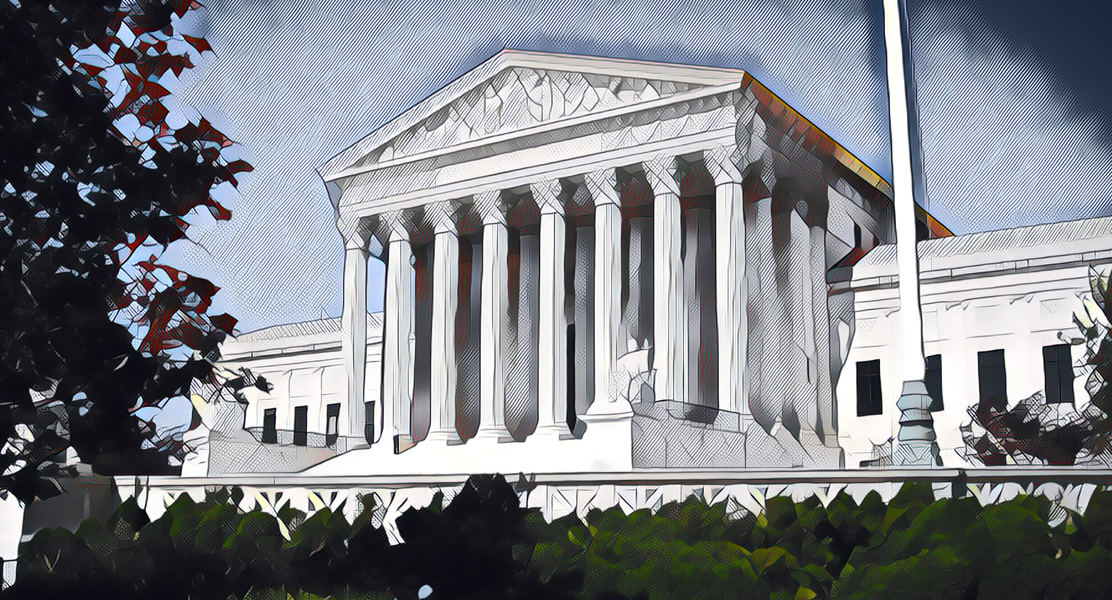Supreme Court justices ponder questions of sincerity, safety, in execution chamber arguments

The U.S. Supreme Court, acting on an expedited schedule, heard oral arguments in Ramirez v. Collier, in which a death row inmate in Texas is challenging the state’s refusal to allow a minister to lay hands on him and pray audibly during his execution by lethal injection. The Court previously issued an emergency injunction temporarily halting the execution to take up the case.
During questioning of the plaintiff’s attorney last week, the Court focused on a few key issues, including how the Court should adjudicate the sincerity of Mr. Ramirez’s claim that denial of such ministerial acts at his death would substantially burden his religious exercise under the Religious Land Use and Institutionalized Persons Act (RLUIPA).
JUSTICE THOMAS: If we think that Mr. Ramirez has changed his request a number of times and has filed last-minute complaints … and if we assume that that’s some indication of gaming the system, what should we do with that with respect to assessing the sincerity of his beliefs?
…
MR. KRETZER: Well, Justice Thomas, I can certainly see how a hypothetical inmate perhaps filing a last-minute such request might so be construed. I can only speak as Mr. Ramirez’s attorney, and I do not play games. There’s no dilatory tactics in this case.
…
Mr. Ramirez filed his … Level 2 grievance in July of 2021. The State sat on this for six weeks, until we were right on the cusp of the execution. I would contend, if there’s any delay here, Justice Thomas, it’s on the part of the State. There’s no insincerity as to Mr. Ramirez’s consistently stated beliefs, and Mr. Ramirez has repeatedly asked as quickly as possible for the…relief, as he is required to, from the prison system.
A common theme was also the concern that requiring Texas to accommodate Mr. Ramirez’s request would open a floodgate of claims for relief from death row inmates seeking to delay their executions. Here’s Justice Alito hitting that point:
JUSTICE ALITO: So can you say anything to us to relieve us of the fear that we are going to get an unending stream of variations about … touching different parts of the body, about the type of prayer, the singing, chanting, number of people in the room? Are we just — is this just what’s going to happen? The lower courts are going to have to deal with this on the eve of every execution, and we’re going to get these at the very last minute and have to decide them. The difference between the — the factual information presented to us in these briefs and what we received in all of the previous stay applications is like night and day.
…
MR. KRETZER: Justice Alito, I mean, I’m certainly no expert on religion. I don’t know all the religions in the world, but … I don’t think any religion has striated that there must be a touch on this particular piece of the body. What we’re talking about here is a laying-on-of-hands doctrine that the minister does with all of his congregants as they’re nearing the point in time that they die.
In questioning of the Texas Attorney General, Justices Breyer and Kagan attempted to point out that where such ministerial acts have been allowed, they have not proven to be disruptive of the execution.
JUSTICE BREYER: Do you have any idea how many executions have there been — let’s go back a hundred years, okay — where they … let the spiritual advisors in, there was physical touching, and there was audible prayer.
…
MR. STONE: It was commonplace in executions… in Texas between 1982 and 2019.
JUSTICE BREYER: Okay…. In how many of those did the audibility and the physical touching create the execution going astray? Are you aware of any?
MR. STONE: No, Your Honor…though I would point out … that for every one of those circumstances, the individual is a [Texas Department of Corrections] employee. …There is a very significant difference between having an outsider with no relationship whatsoever –
JUSTICE KAGAN: Are you aware in any other states of an execution going astray because of an outside spiritual advisor?
MR. STONE: No, Justice Kagan, though I do — we reached out to other states, and because this is very new in the handful of jurisdictions that allow it, I’m not surprised that we have none of them. This is the sort of thing we would anticipate to be a very low likelihood of occurring. It just has a catastrophic potential of potential damage if it did.
You can read the transcript of oral arguments here; or listen to audio here.
BJC joined a brief in this case urging the Court to side with Ramirez, “to prevent him from being executed in a manner inconsistent with his right to exercise his religion in the last minutes of his life.”
Be sure to catch this week’s episode of Respecting Religion where Amanda and Holly discuss the oral arguments and what stood out most to them, and subscribe to the new “Respecting Religion” podcast feed wherever you listen to podcasts.
For more background on this case and general topic, see my previous post here; see also BJC’s resource page on RLUIPA.




